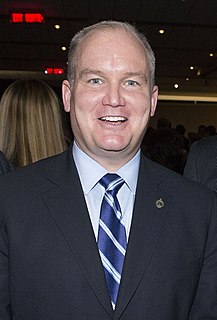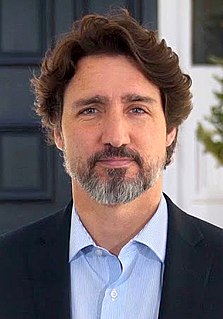The Progressive Conservative Association of Alberta was a provincial centre-right party in the Canadian province of Alberta. The party formed the provincial government, without interruption, from 1971 until the party's defeat in the 2015 provincial election under Premiers Peter Lougheed, Don Getty, Ralph Klein, Ed Stelmach, Alison Redford, Dave Hancock and Jim Prentice. At 44 years, this was the longest unbroken run in government at the provincial or federal level in Canadian history.

The Alberta New Democratic Party, commonly shortened to Alberta's NDP, is a social-democratic political party in Alberta, Canada. It is the provincial Alberta affiliate of the federal New Democratic Party of Canada, and the successor to the Alberta section of the Co-operative Commonwealth Federation and the even earlier Alberta wing of the Canadian Labour Party and the United Farmers of Alberta. From the mid-1980s to 2004, the party abbreviated its name as the "New Democrats" (ND).
The Western Independence Party of Saskatchewan is a registered provincial political party in Saskatchewan, Canada. It advocates for the independence of Saskatchewan and libertarian ideals. The party is led by Neil Fenske and is not affiliated with any federal party.

There have been various movements within Canada for secession.

The Freedom Conservative Party of Alberta was an Albertan autonomist libertarian/libertarian-conservative political party in Alberta, Canada.

Alberta separatism comprises a series of 20th and 21st century movements advocating the secession of the province of Alberta from Canada, either by forming an independent nation or by creating a new union with one or more of Canada's western provinces. The main issues driving separatist sentiment have focused on power disparity relative to Ottawa and other provinces, and Canadian fiscal policy, especially as it pertains to the energy industry.

Alberta was, between 1989 and 2012, the only Canadian province to elect nominees for appointment to the Senate of Canada in a process known as an Alberta Senate nominee election. These elections were non-binding, as the appointment of Senators remained the responsibility of the Governor General of Canada on the advice of the Prime Minister. The process ultimately resulted in ten elected nominees, five of whom were appointed to the Senate. The legislation enabling Senate nominee elections expired in 2016, but two elected Senators still hold their seats.
The Wildrose Party was a conservative provincial political party in Alberta, Canada. The party was formed by the merger in early 2008 of the Alberta Alliance Party and the unregistered Wildrose Party of Alberta. The wild rose is Alberta's provincial flower.
James Albers is a former provincial level politician from Alberta, Canada.
The New Democratic Party is a social democratic federal political party in Canada. The party was founded in 1961 by the Co-operative Commonwealth Federation (CCF) and the Canadian Labour Congress (CLC). On the Canadian political spectrum, the party sits to the left of the Liberal Party. The federal and provincial level NDPs are more integrated than other political parties in Canada, and have shared membership.

Marlaina Danielle Smith is a Canadian former politician, journalist for Global News, and talk radio host for CHQR. Smith served as leader of the Wildrose Party from October 2009 to December 17, 2014 when she resigned to cross the floor and join the governing Progressive Conservative Association of Alberta caucus. She represented the riding of Highwood in the Legislative Assembly of Alberta. On March 28, 2015, she lost the PC nomination for Highwood to Okotoks Councillor Carrie Fischer. Fischer went on to be defeated by Wildrose candidate Wayne Anderson in the 2015 General Election.

Erin Michael O'Toole is a Canadian politician who has served as the leader of the Official Opposition of Canada and the leader of the Conservative Party of Canada since August 24, 2020. O'Toole served as minister of veterans affairs in 2015. He has been the member of Parliament (MP) for Durham since 2012.

The 2019 Alberta general election was held on April 16, 2019, to elect 87 members to the 30th Alberta Legislature. In its first general election contest, the Jason Kenney-led United Conservative Party (UCP) won 54.88% of the popular vote and 63 seats, reducing Premier Rachel Notley's governing Alberta New Democratic Party (NDP) to Official Opposition with 24 seats. The United Conservative Party was formed in 2017 from a merger of the Progressive Conservative Party and the Wildrose Party after the NDP's victory in the 2015 election ended nearly 44 years of Progressive Conservative rule.

The 2019 Canadian federal election was held on October 21, 2019, to elect members of the House of Commons to the 43rd Canadian Parliament. The writs of election for the 2019 election were issued by Governor General Julie Payette on September 11, 2019.
The United Conservative Party is a conservative political party in the province of Alberta, Canada. It was established in July 2017 as a merger between the Progressive Conservative Association of Alberta and the Wildrose Party. When established, the UCP immediately formed the Official Opposition in the Legislative Assembly of Alberta. The UCP won a majority mandate in the April 16, 2019 election to form the government of Alberta. UCP leader Jason Kenney became premier on April 30, 2019 when he and his first cabinet were appointed and sworn in by the lieutenant governor of Alberta, Lois Mitchell.
The 31st Alberta general election will be held in Alberta, Canada, to elect the members of the Legislative Assembly of Alberta. According to Alberta's Election Act, it must be held between March 1, 2023, and May 31, 2023, but that does not affect the powers of the Lieutenant Governor of Alberta to dissolve the legislature before that time, in accordance with the usual conventions of the Westminster parliamentary system.

The 44th Canadian federal election will take place on or before October 16, 2023 to elect members of the House of Commons to the 44th Canadian Parliament. The latest possible date of the vote is determined by the fixed-date provisions of the Canada Elections Act, which requires federal elections to be held on the third Monday in October in the fourth calendar year after the polling day of the previous election. Since the current government is a minority government, the election may be held before the scheduled date if Parliament is dissolved by the Governor General of Canada due to a motion of no confidence in the government or by a recommendation of the Prime Minister of Canada for a snap election.

Wildrose Independence Party of Alberta is a provincial political party in Alberta, Canada, which was formed through the merger of Wexit Alberta and the Freedom Conservative Party of Alberta in 2020. Paul Hinman is the pary’s interim leader.
Buffalo Party of Saskatchewan is a provincial political party in Saskatchewan, Canada, which was formerly known as Wexit Saskatchewan. Wade Sira is the party’s interim leader.
Peter Downing is a Canadian politician and the former leader of Wexit Canada. Downing founded Wexit Canada in the aftermath of Justin Trudeau's re-election in the 2019 Canadian federal election. Downing is also a former member of the Canadian Armed Forces and the Royal Canadian Mounted Police, though he left the force following a conditional discharge for allegedly uttering threats against his ex-wife in 2009. Downing stepped down as leader of Wexit Canada in June and was replaced by interim Leader and former Conservative Member of Parliament Jay Hill.












